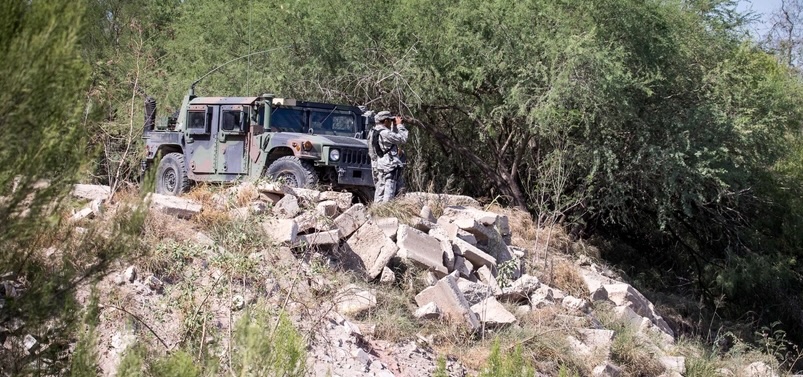Already a subscriber? Make sure to log into your account before viewing this content. You can access your account by hitting the “login” button on the top right corner. Still unable to see the content after signing in? Make sure your card on file is up-to-date.
The US military has confirmed plans to send up to 500 troops to West Texas, including into Big Bend National Park.
Some shit you should know before you read: If you’re unaware, Big Bend National Park sits in one of the most isolated regions of the US, stretching across more than 800,000 acres of desert and mountains along the Texas-Mexico border. It shares about 118 miles of border with Mexico, separated by the Rio Grande. Despite the length, this area sees far fewer illegal crossings compared to other border sectors, primarily due to its difficult terrain.

What’s going on now: First reported by Marfa Public Radio and confirmed at a press conference in Alpine, the US military has begun deploying troops and armored vehicles to the Big Bend region as part of President Donald Trump’s renewed push to secure the southern border. As of mid-March, more than 200 troops from the Army’s 4th Infantry Division, based at Fort Carson, Colorado, have arrived in the tri-county area of West Texas. That number is expected to grow to roughly 500 in the coming weeks.
These troops are part of the Joint Task Force Southern Border mission, and their assignment is to support US Customs and Border Protection (CBP) through surveillance, detection, and intelligence. The deployment includes Stryker armored vehicles, tactical trucks, and other military equipment, with troops stationed in highly visible positions.
Military officials have confirmed that soldiers will not be making arrests, will not be patrolling in city limits, and will follow standard rules for use of force, allowing only self-defense. Major Jared Stefani, the officer leading the battalion in Big Bend, stated that the troops will primarily assist Border Patrol by identifying crossings and relaying information, freeing CBP agents to conduct apprehensions.
This comes as the Mexican government undertakes an even larger mobilization of its own, with 10,000 active-duty troops deployed along the northern border. The move, widely seen as a response to pressure from the Trump administration, is aimed in part at preventing US tariffs.






